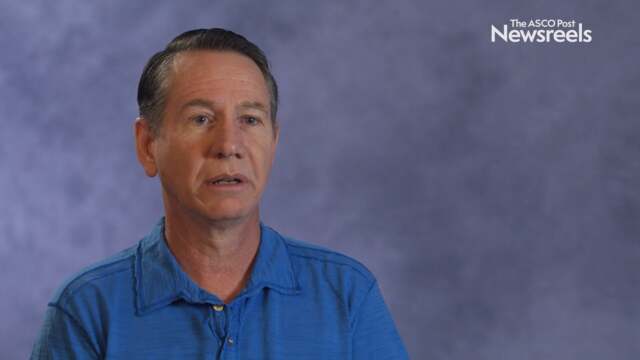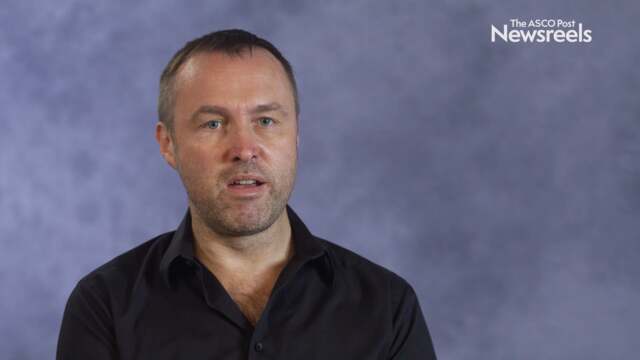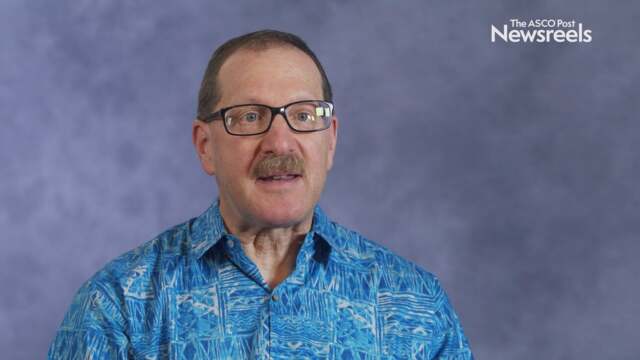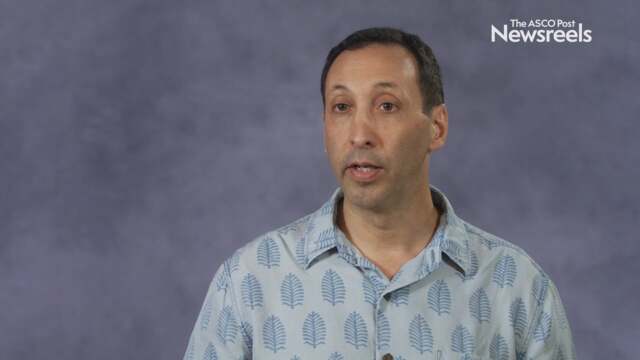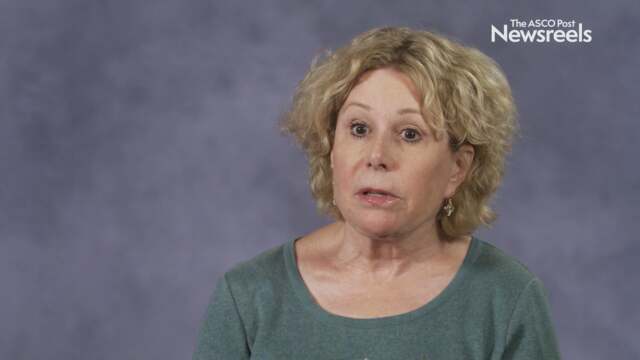Peggy Burhenn, MS, RN-BC, AOCNS, on Lymphoma: Managing Older Adults
Pan Pacific Lymphoma Conference 2018
Peggy Burhenn, MS, RN-BC, AOCNS, of the City of Hope National Medical Center, discusses the challenges of working with older lymphoma patients and the importance of effective geriatric assessments.
Stephen M. Ansell, MD, PhD, of the Mayo Clinic, discusses the efficacy of PD-1 blockade in Hodgkin lymphoma, new findings related to PD-1 therapy, current combination approaches, and future treatments.
Kieron M. Dunleavy, MD, of George Washington University, discusses the need for drug combinations to improve lymphoma therapy, despite unexpected toxicities, as our understanding of the molecular biology grows.
Philip J. Bierman, MD, of the University of Nebraska Medical Center, discusses how to identify and treat the 1% to 2% of patients with diffuse large B-cell lymphoma who have central nervous system involvement as well as systemic sites at the time of diagnosis.
Steven M. Horwitz, MD, of Memorial Sloan Kettering Cancer Center, discusses aggressive subtypes of peripheral T-cell lymphoma and the coming data that may help clarify what could be the most effective treatments.
Susan M. O’Brien, MD, of the University of California, Irvine, discusses three oral agents for the treatment of chronic lymphocytic leukemia/small lymphocytic lymphoma, and the use of chemotherapy for the disease.
